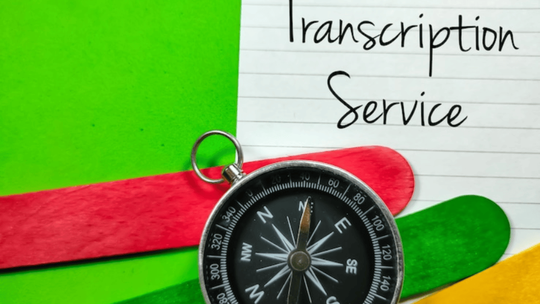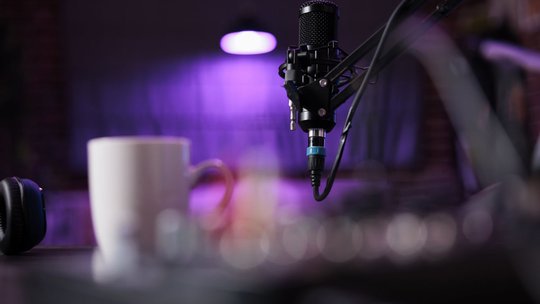Blog
Starting a Successful Podcast: Some Tips and Insights

Published 7/9/2023 by Rane
If you’re anything like me, you’ve probably thought about launching a podcast of your own. In fact I did! I started The Flow Artists podcast with my wife Jo. I’m going to be honest, it’s not the most popular podcast in the world, and that’s OK!
Running a podcast can have benefits you would not have even considered, such as making new friends and contacts from around the world - people who are experts in their fields!
Our podcast was even a factor in helping Jo to get a book publishing deal - something we would never have considered when we started!
So we may not have huge audience numbers, but I have learned a few things in my time hosting podcasts, and I thought I’d share some of my hard learned lessons with you.
Podcasting has emerged as a powerful medium for sharing stories, knowledge, and engaging with audiences worldwide. If you're passionate about a subject and eager to dive into the world of podcasting, I’m here to help!
In this article, we will provide aspiring podcasters (I’m guessing that’s you) with a step-by-step roadmap to start their podcasting journey on the right foot. From choosing a topic, to equipment recommendations, recording and editing techniques, and tips for a successful launch, this guide will equip you with the knowledge and insights to create a podcast that captivates your audience or at least helps you build your community.
Finding Your Podcast Niche:
To start a successful podcast, it's crucial to identify your podcast niche. Explore your interests, expertise, and passions to discover a topic that resonates with you and your potential audience. Narrow down your focus, identify your target audience, and consider what unique value you can offer within your chosen niche. As they say - the riches are in the niches! For my wife Jo Stewart and I, we were pretty sure that we wanted to do a podcast on yoga. There were a few yoga podcasts at the time, but not that many that focused on Australian teachers. Jo had been teaching yoga for about 10 years, and I had just completed a yoga teacher training course, so it seemed like a perfect fit!
Planning and Preparing Your Content:
Once you've defined your podcast niche, it's time to plan and prepare your content. Create an outline or a content roadmap for your episodes, identifying key themes, potential guests, and episode formats. This will provide structure and direction to your podcasting journey, ensuring your episodes deliver value and engage your audience.
We decided we wanted to do an interview format. We had stuff we wanted to share, but we also knew a lot of people with decades of experience in the yoga world.
One of the first things that Jo and I did was write down a list of some of our favourite local teachers, friends and mentors. We actually put together a fairly long list! All we had to do from here was reach out!
Selecting the Right Equipment:
While podcasting doesn't require expensive equipment, investing in quality audio gear is essential for delivering a professional listening experience. Choose a reliable microphone, headphones, and a pop filter to ensure clear and crisp audio. We started our podcast with a cheap digital microphone / recorder device. The sound wasn’t that great, but it did the job. I know of people that have recorded episodes on their iphone and have gotten great results.
Later on we invested in more equipment, but that’s for another post…
Recording and Editing Techniques:
Learn the art of recording and editing to produce high-quality podcast episodes. Find a quiet space with minimal background noise for recording. Experiment with microphone positioning and audio settings to achieve optimal sound quality. When it comes to editing, you can use a DAW like Audacity or Ableton to remove any unwanted noise, enhance audio levels, and add intros, outros, and music to create a polished final product.
You’ll also need to consider how to interview your guests - if you’re speaking in person, you’ll need to set up something to record with. If you’re going the remote route, you could use zoom, or zencastr is another great option. We’ve used both, and they both have their pros and cons. Do some research to find out what is the best for you. There are other programs that virtually automate the whole process!
If you have the budget, you might want to consider hiring someone to edit for you. We were lucky enough to find someone who produces great sounding well edited podcasts for us at a very affordable rate.
Hosting and Publishing Your Podcast:
Select a podcast hosting platform that suits your needs. These platforms store your podcast files and generate an RSS feed, which enables distribution to podcast directories such as Apple Podcasts, Spotify, and Google Podcasts. Make sure to craft compelling episode titles, descriptions, and cover art to attract potential listeners. Submit your podcast to directories and promote it on your website, social media, and other relevant platforms. Anchor/Spotify or Transistor are good options, but there are many more!
Launching Your Podcast Successfully:
Launching your podcast with a bang can help build momentum and attract early listeners. Prepare a launch strategy that includes leveraging your existing network, reaching out to potential guests, engaging with podcasting communities, and implementing marketing tactics such as teaser episodes, trailer releases, and social media campaigns. Encourage listeners to subscribe, review, and share your podcast to expand your reach. Do everything you can to start with a bang!
Engaging with Your Audience and Growing a Community:
Building a loyal and engaged audience is vital for long-term podcast success. Interact with your listeners through social media, email newsletters, and comments. Encourage feedback, questions, and topic suggestions from your audience. Consider hosting live Q&A sessions, collaborating with other podcasters, or organising listener contests to foster a sense of community around your show.
Conclusion:
Starting a podcast is an exciting endeavour that allows you to share your passion and connect with audiences worldwide. By following this guide, you have gained valuable insights and step-by-step tips to set yourself up for podcasting success. Remember, finding your niche, planning your content, investing in quality equipment, mastering recording and editing techniques, and executing a successful launch are key elements to create a podcast that resonates with your audience. Stay consistent, engage with your listeners, and success will surely come.
Start creating for free
Turn your podcast, audiobook or talk into sharable video and text content
Try it today


